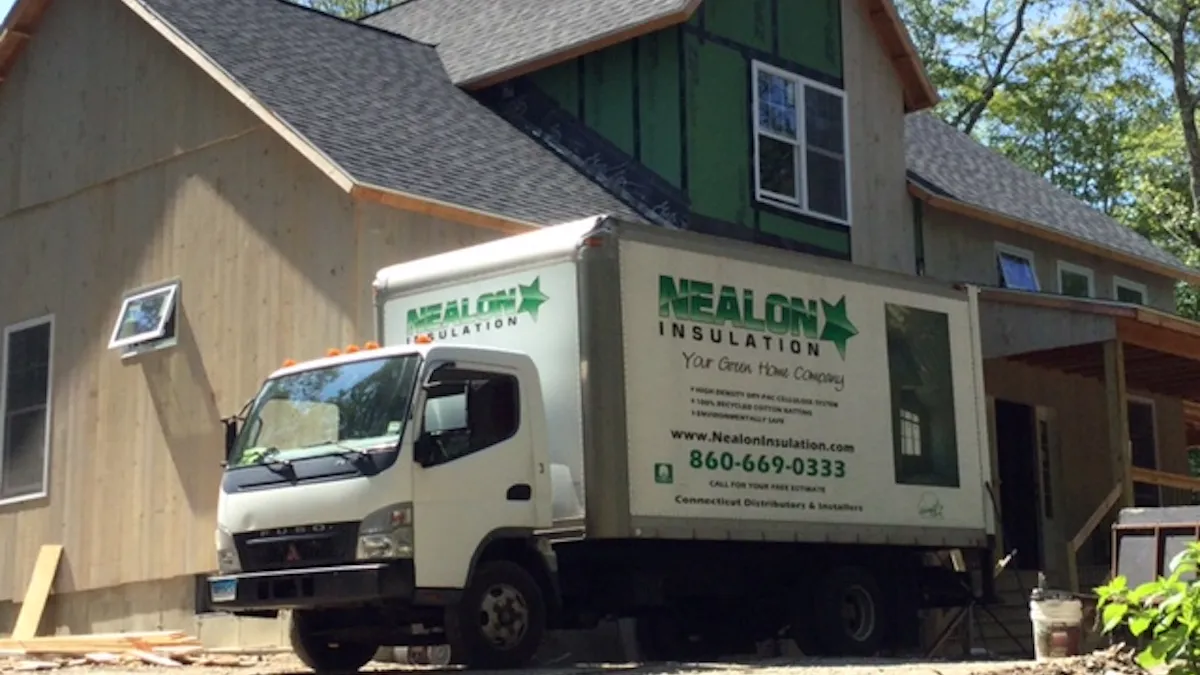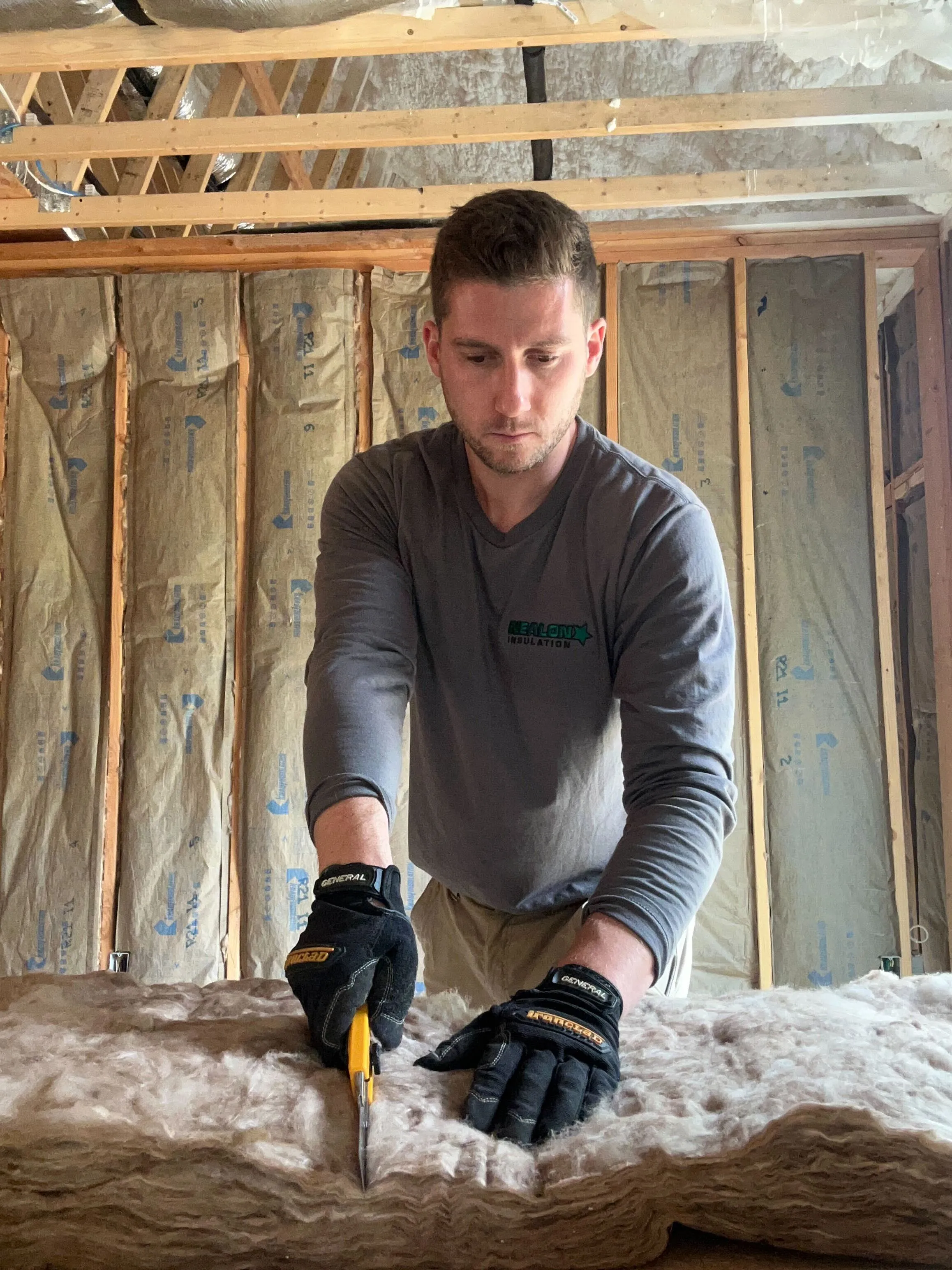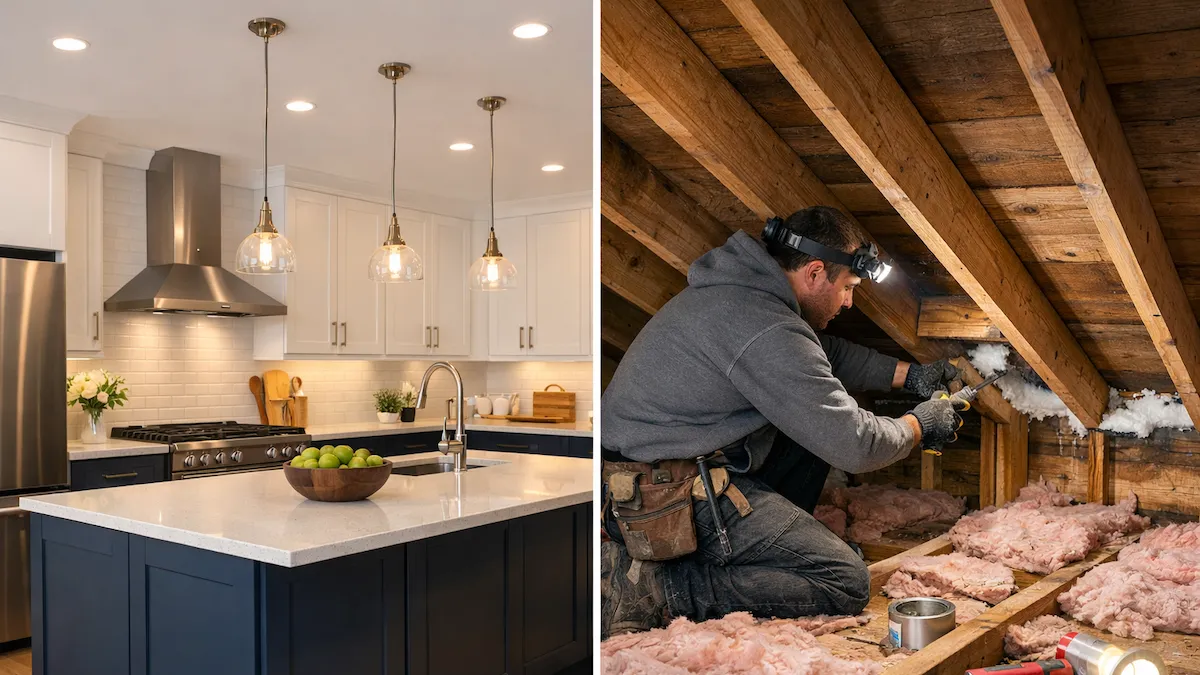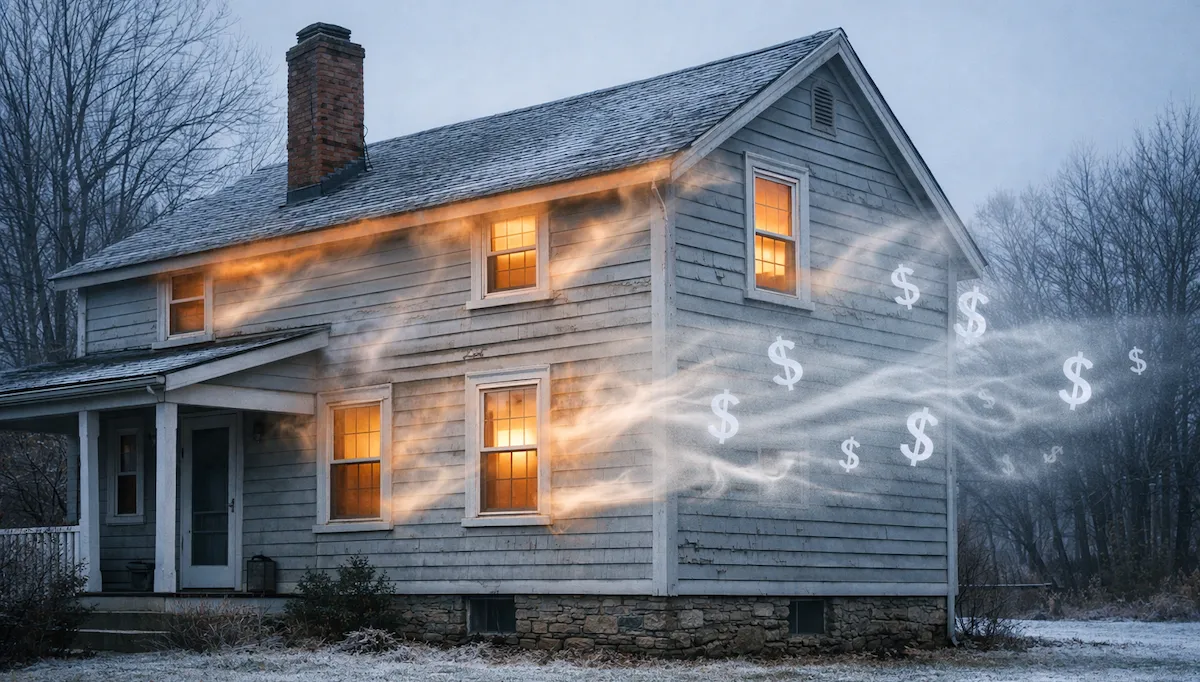10 Smart Questions to Ask Before Hiring an Insulation Contractor

Before you hire an insulation contractor, make sure you’re asking the right questions. The right crew can make your home quieter, more comfortable, and more energy efficient. The wrong one can leave you with drafts, high bills, and regrets. Here’s how to separate the pros from the pretenders.
Why It Pays to Ask the Right Questions
Hiring an insulation contractor isn’t just about finding someone who owns a spray rig or a blower. It’s about trusting a crew to open up your walls or attic and do work you can’t see but will absolutely feel every day in your energy bills and comfort level.
A good insulation job keeps your home warm in winter, cool in summer, and dry all year. A bad one? That’s drafty rooms, ice dams, and money quietly drifting out through your roof.
That’s why asking the right questions matters. The best contractors welcome smart questions — it tells them you care about quality. The ones who dodge them? That’s your cue to move on.
In this guide, we’ll cover ten questions every homeowner should ask before signing a contract from licenses and crew training to air sealing, warranties, and rebates. Whether you’re planning attic insulation, wall retrofits, or a full home upgrade, these questions will help you spot pros from pretenders.
1. How Long Have You Been in the Insulation Business?
Insulation looks simple, blow it in, spray it on, call it a day. But there’s a reason veteran contractors make it look easy: they’ve learned all the ways a house can fight back.
Someone who’s been insulating homes in Connecticut for 10, 20, or 40 years has seen everything — leaky ridge vents, damp crawlspaces, attic decks with gaps the size of golf balls. They know how to read a house, not just follow a manual.
A newer company might give you a good price, but experience is what separates a quick fix from a permanent improvement. Ask your contractor:
- How long have you been doing insulation work?
- What types of homes or projects do you specialize in?
- Can you share local examples or past jobs similar to mine?
If they hesitate or dodge those questions, move on. A reputable insulation contractor will want to show off their work because every solid job is a quiet advertisement.
10 Common Insulation Questions Answered: Costs, Types & Energy Savings
2. Are You Registered and Insured?
Here’s the deal: in Connecticut, insulation contractors don’t need a special trade license but they do need to be registered with the state as a Home Improvement Contractor (HIC) and carry insurance.
That registration isn’t just a formality. It means the business is on record with the Department of Consumer Protection, has met the state’s requirements, and is legally allowed to perform insulation work in your home. If a contractor isn’t registered, that’s your sign to walk away.
Always ask for two things:
- Their Home Improvement Contractor registration number. Ours is HIC.0699578.
- Proof of liability insurance.
A legitimate contractor will hand those over without hesitation. If they start making excuses or say “you don’t need that,” they’re either cutting corners or trying to stay off the radar — and neither is good news for your attic.
In short: make sure your contractor is registered, insured, and proud to prove it. The paperwork might not be exciting, but it’s what protects you, and your home, if something goes wrong.
3. Can You Share Local References or Reviews?
A solid insulation contractor should have happy customers within a few ZIP codes of you — and they should be proud to tell you about them.
Check their Google Reviews, not just the testimonials on their website. Look for consistent praise around professionalism, cleanliness, and follow-up — not just “showed up on time.” If you see words like “lower energy bills” or “house feels warmer already,” that’s the gold standard.
Don’t be shy about asking, “Can I see photos or visit a job you’ve completed?” The best contractors love showing off their work, insulation might not be glamorous, but craftsmanship still matters.
If they hesitate, make excuses, or claim “privacy reasons” without offering something tangible, that’s a red flag. Trustworthy contractors want you to feel confident before they ever load the truck.
4. What Types of Insulation Do You Install?
Every insulation contractor has a “favorite” material — and that’s fine — but a good one should understand all the options and know when each makes sense.
If a contractor only installs one type (and trashes the rest), that’s a red flag. It usually means they’re selling what they have, not what your house needs.
Here’s a quick cheat sheet for homeowners:
A trustworthy insulation company will walk you through each option, explaining the pros, cons, and what fits your specific home and budget. They’ll ask about your goals (comfort, energy savings, soundproofing) before recommending a product.
If they can’t answer those questions clearly, keep shopping. You’re not just buying insulation — you’re buying their expertise.
5. How Do You Handle Air Sealing and Ventilation?
If your insulation contractor doesn’t bring up air sealing, stop the conversation right there.
Insulation without proper air sealing is like wearing a winter coat with the zipper wide open — you’re technically “covered,” but the heat’s still escaping. The best insulation crews know this and treat air sealing as part of the job, not an add-on.
Ask your contractor how they handle it:
- Do they seal gaps before insulating?
- Will they address leaks around fixtures, vents, and attic hatches?
- How do they balance insulation with attic ventilation to prevent moisture and ice dams?
A good contractor will talk about airflow, vapor movement, and attic health like it’s second nature. They’ll explain how sealing leaks helps you hit higher R-values without overworking your HVAC system.
Here in Connecticut, where winter humidity and summer heat both take their swings, skipping air sealing is a rookie mistake. You’ll save more energy sealing leaks than adding another few inches of insulation.
What's the cost to air seal a house in Connecticut?
6. Who Performs the Work — Your Team or Subcontractors?
You’d be surprised how many homeowners sign a contract thinking they’ve hired one company—only to have a totally different crew show up on insulation day.
Here’s the thing: insulation work is only as good as the hands doing it. You want to know exactly who’s coming into your home and whether they’re trained, insured, and held to the same standards as the company giving you the quote.
Ask:
- “Does your own crew handle the work, or do you subcontract it out?”
- “How are your installers trained and supervised?”
- “Who’s responsible for cleanup and quality control?”
An in-house crew means consistency. It means the same people who quote the job are invested in finishing it right. Subcontractors can be fine but only if they’re experienced, properly insured, and held accountable.
At Nealon Insulation, we take pride in our own team showing up in branded trucks, on time, ready to work. No mystery vans, no middlemen just trained professionals who care about doing it right the first time.
7. What’s Included in the Quote?
Here’s where a lot of insulation jobs go sideways — in the fine print (or lack of it). A good quote should read like a recipe, not a riddle. Every material, task, and cleanup step should be spelled out.
Ask your contractor to break down:
- Labor and material costs (including insulation type and R-value).
- Air sealing and whether it’s included.
- Old insulation removal.
- Cleanup and disposal.
If the quote just says “attic insulation – $3,200,” that’s not a quote — that’s a guessing game. You should know exactly what you’re paying for, and just as importantly, what you’re not.
A detailed proposal protects both sides. It helps you compare apples to apples and avoid “surprise” charges after the truck pulls away. It’s also a sure sign you’re dealing with a professional who runs their business with integrity, not a fly-by-night crew working out of a pickup.
8. Do You Work with EnergizeCT?
A great insulation job doesn’t just save you energy, it can earn you money back with rebates.
In Connecticut, programs like Energize CT’s Home Energy Solutions (HES) offer rebates and incentives that cover part of your insulation and air sealing costs. But here’s the catch: you only qualify if the work is done by a participating contractor or tied to a certified energy audit.
Ask your insulation company:
- “Are you an Energize CT–approved contractor?”
- “Which rebates or federal tax credits can I apply for?”
A professional contractor will not only know the answers — they’ll handle the paperwork for you. They’ll explain how the audit process works, what improvements qualify, and how much you can expect back.
Homeowners who skip this question often leave hundreds (sometimes thousands) of dollars on the table. So before you sign anything, make sure your contractor helps you tap every available rebate, tax credit, and incentive. That’s money well spent — and money wisely saved.
9. Do You Stand Behind Your Work?
Here’s the truth: most insulation jobs don’t come with fancy warranties or lifetime guarantees and they don’t really need to. Good insulation, installed the right way, just works.
But what separates a real contractor from a “get-in, get-paid, get-out” crew is what happens after the job’s done.
At Nealon Insulation, we stand behind our work. If we missed something, we come back and fix it. No finger-pointing, no “that’s normal” excuses. Just accountability.
When you’re hiring a contractor, ask how they handle follow-ups. Do they check back in? Do they return your call if there’s a problem? You can learn a lot about a company by how they treat you after they’ve been paid.
A solid insulation company doesn’t need a 20-page warranty to prove they care. They just need a good reputation — and a promise they’ll stand by their work, every time.
10. Why Hire a Local Insulation Company in Connecticut?
Every home leaks heat differently — and in Connecticut, the weather finds every weak spot. A local insulation contractor knows those patterns because they’ve lived them.
Hiring local means you’re getting someone who understands our climate, our codes, and our rebates. They know what works in a 1920s shoreline bungalow versus a 1990s colonial in Guilford. They also have relationships with Energize CT and other regional programs, which makes getting rebates smoother and faster.
Local contractors also have skin in the game. They rely on word-of-mouth, not billboards. If they cut corners, the neighbors find out. And when they do a great job, that reputation sticks around longer than any marketing campaign.
At Nealon Insulation, we’ve been insulating Connecticut homes since 1977. From Old Saybrook to Madison to Branford, we’ve seen it all — and insulated it all. So when you hire local, you’re not just buying insulation. You’re investing in a company that actually cares about keeping your house comfortable through every Connecticut season.
Final Thoughts: Hire for Quality, Not Just the Lowest Bid
The insulation business is full of shiny promises — “cheapest quote,” “quick install,” “same-day comfort.” But insulation is one of those jobs where you only get one good shot. Do it right, and your home runs smoother for decades. Do it cheap, and you’ll be paying for it in drafts, ice dams, and high utility bills.
The best insulation contractors don’t just fill cavities with material — they fix problems you can’t see. They take time to understand your home, recommend the right products, and stand behind their work long after the truck leaves your driveway.
So when you’re interviewing insulation companies, use these ten questions like a filter. The pros will have real answers, clear quotes, and proof to back them up. The rest? You’ll spot them in about five minutes.
Common FAQ's about Insulation
How can I tell if my home actually needs more insulation?
You may need more insulation if energy bills rise, rooms feel drafty, or attic temperatures swing between seasons. Seeing ceiling joists in your attic is another sign—Connecticut homes should have R-49 to R-60 (14–18 inches) of insulation. A home energy audit or blower door test confirms where upgrades are needed.
What’s the difference between adding insulation and replacing it?
The main difference between adding and replacing insulation is condition. Adding insulation means layering new material over existing dry, clean insulation. Replacing insulation requires removing old or damaged material—such as wet, moldy, or pest-contaminated sections—before installing new insulation for full performance and safety.
How do insulation contractors measure quality after the job is done?
Insulation contractors measure quality by performance, not appearance. They check insulation depth and coverage for proper R-value, use infrared imaging to confirm heat loss areas are sealed, and perform air leakage tests. Many also provide before-and-after photos or energy reports to document measurable efficiency improvements.
Are all insulation materials safe for indoor air quality?
Most modern insulation materials are safe for indoor air quality when installed properly. Cellulose is non-toxic and fire-resistant, fiberglass is safe after installation but can irritate during handling, and spray foam requires trained application to prevent fume release. Proper ventilation and certified installation ensure safe air quality.
What time of year is best to install insulation in Connecticut?
The best time to install insulation in Connecticut is during spring or fall. Mild weather allows easier installation, faster scheduling, and preparation before temperature extremes. Installing before winter avoids contractor delays and ensures your home stays warm, energy-efficient, and protected from ice dams when cold weather arrives.
Related Articles
Let's Work Together
Ready to transform your home into an energy-efficient haven? Schedule your free energy assessment today and experience the Nealon difference for yourself.



